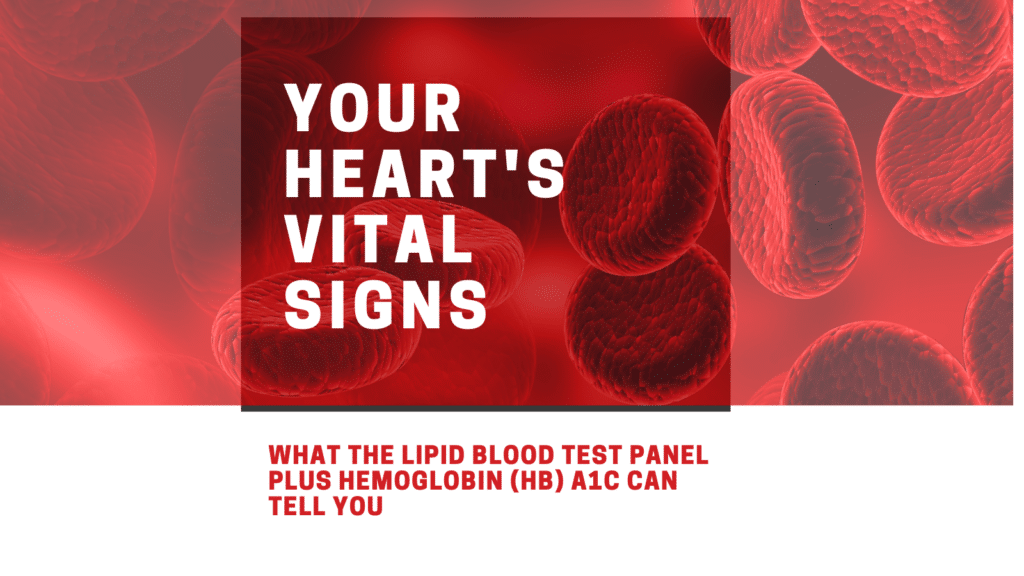Your Heart’s Vital Signs: What the LIPID BLOOD TEST PANEL PLUS HEMOGLOBIN (HB) A1C Can Tell You

Cardiovascular disease is a leading cause of death globally, making it crucial to assess and prevent it. Blood tests play a significant role in determining the risk of cardiovascular disease, as well as providing valuable information about the general health of the heart. A blood test, such as the LIPID BLOOD TEST PANEL PLUS HEMOGLOBIN (HB) A1C, can evaluate various indicators of cardiovascular health, including cholesterol, glucose, and hemoglobin levels. A blood sample is taken for laboratory analysis, and the results can be used by a doctor to determine the likelihood of developing heart disease and provide advice on lifestyle changes or medication.
It’s essential to prepare properly for a LIPID BLOOD TEST PANEL PLUS HEMOGLOBIN (HB) A1C blood test to obtain reliable results. It’s important to inform your doctor of any vitamins or medicines you’re taking, as some drugs can negatively affect the lipid profile. Fasting for 8-12 hours before the test is also recommended, as recent meals can impact the levels of glucose and cholesterol being examined. Staying hydrated and following your doctor’s instructions are also crucial for accurate results.
The LIPID BLOOD TEST PANEL PLUS HEMOGLOBIN (HB) A1C blood test measures various indicators of cardiovascular health, including high LDL cholesterol, LDL, HDL, triglycerides, blood sugar levels, and levels of hemoglobin A1C. The results of this blood test can help a doctor assess your risk of heart disease and establish a plan for reducing it, such as dietary modifications, exercise, or medication. It’s important to work closely with your doctor and follow their preparation instructions to ensure the accuracy of the test results.
What’s the Deal with CMP Tests? The Lowdown on testing for Liver, Kidney & Body Health

The Comprehensive Metabolic Panel (CMP) is a blood test that provides a snapshot of the chemical composition of a person’s body. The test checks the levels of glucose, electrolytes, proteins, and the function of the liver and kidneys. It is often ordered by a doctor to diagnose illness, monitor health over time, or prior to taking new medications. The CMP requires a fast of eight to twelve hours before the test, and a sample of the patient’s blood is collected by a healthcare professional and sent to a laboratory for analysis. The procedure of collecting the blood sample is quick and simple, with a needle inserted into the patient’s arm to collect a small blood sample in a test tube. The process usually takes less than five minutes and is not painful.